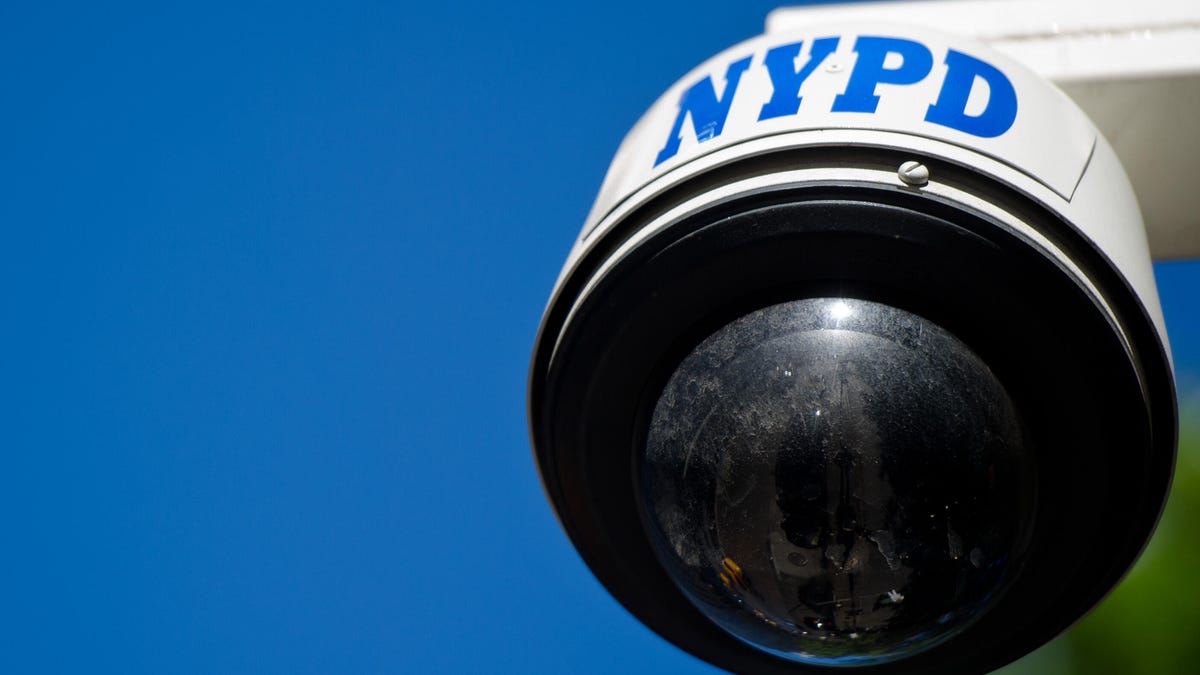New York passes bill requiring NYPD to disclose all its surveillance tools
The bill calls for the largest police force in the US to let the public know how they're being spied on.

With an annual budget of an estimated $6 billion, the NYPD has access to a swath of surveillance tools.
The New York City Council voted Thursday to require the NYPD, the nation's largest police department, to disclose all the technology it uses to conduct surveillance on people. The vote comes after a national rallying cry against police brutality following multiple police-involved deaths of black people.
New York City lawmakers passed the Public Oversight of Surveillance Technology (POST) Act, with a veto-proof majority. Mayor Bill de Blasio has 30 days to sign it into law and has said he backs the legislation.
The law will require the NYPD to reveal all surveillance technology it uses on the public and to develop policies on how that tech can be used. The law will also mandate that the police department publish an annual oversight report to ensure it's following those policies.
"These measures that we are voting on today increase accountability and transparency in the department, and provide clear guidelines for addressing police misconduct," City Council Speaker Corey Johnson said at a hearing Thursday.
With an annual budget of an estimated $6 billion, the NYPD has access to a swath of surveillance tools, from facial recognition technology to license plate readers to X-ray vans. Many of these tools are known to the public only because of reports and public information requests, and privacy advocates warn that there's much more that the NYPD isn't revealing.
Cities like Seattle, Oakland, Detroit and Nashville have already passed similar bills, but a New York law would mean one of the most powerful police forces in the world would have to come clean on the spy technologies it's using.
"Now the NYPD will have to show the public just how invasive and biased its tracking tools are," said Albert Fox Cahn, the executive director of the Surveillance Technology Oversight Project. "For far too long, the NYPD has used federal and private grants to spy on New Yorkers without any civilian oversight, particularly New Yorkers of color, immigrants and the Muslim community."
The NYPD opposed the bill, telling the city council in December that if the POST Act were to pass, it would tip the department's hand to terrorists and criminals. The NYPD didn't respond to a request for comment.
While the city council met to vote on the surveillance reform, the NYPD tweeted that the POST Act would endanger undercover officers by revealing the devices they use.
The broad language in the POST Act would include sensitive & confidential technology used by undercover police officers on the most dangerous assignments. Publicly disclosing this technology would compromise their safety & effectiveness.
— NYPD NEWS (@NYPDnews) June 18, 2020
Read more ⬇️ https://t.co/hdHqyVWEqO
The POST Act was first introduced in 2017 but had been long delayed for a vote due to the NYPD's opposition. Protests against police violence in New York and cities around the world have sparked calls for law enforcement reform, including surveillance measures.
"This moment couldn't have happened without New Yorkers taking to streets and demanding racial justice and police accountability," said Angel Diaz, liberty and national security counsel at the Brennan Center for Justice. "The POST Act brings surveillance oversight to the nation's largest police force, and is a first step in addressing the NYPD's reliance on broken and biased technologies."
Lawmakers across the US are reexamining how police forces spy on people, and passing local legislation to reduce surveillance efforts. In Santa Cruz, California, the city is expected to ban predictive policing -- technology that's been criticized for using biased data to predict where crimes will happen.
In Detroit, the city's facial recognition contract is coming to an end in July, and activists are pushing for lawmakers not to extend the deal.
New York has already passed several of its own police reform measures, including a repeal of Law 50-A, which kept police personnel records secret from the public.
City council member Vanessa Gibson, who sponsored the POST Act, said it strikes a balance between privacy and security. "These measures are important safeguards to protect the civil liberties and privacy rights of New Yorkers," she said, "in an effort to balance law enforcement and national security concerns with the need for transparency and accountability."

